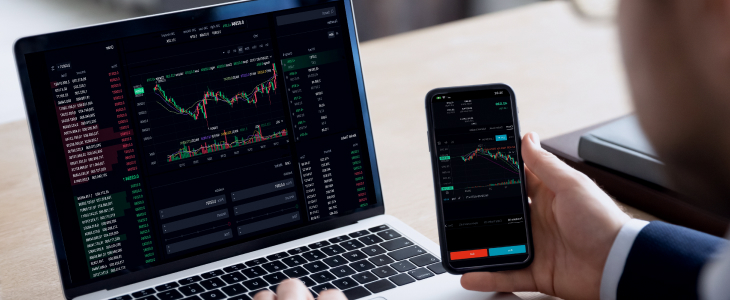
When embarking on your forex trading journey, one of the first and most crucial steps is to choose the right forex trading account Trading Brokers forex trading account. With numerous options available in the market, it can be overwhelming to make a decision. This article will guide you through the main aspects of forex trading accounts, helping you make an informed choice.
Understanding Forex Trading Accounts
A forex trading account enables you to trade currencies on the forex market. When you open an account, you’re essentially creating a virtual wallet that allows you to buy and sell currency pairs. The two primary types of accounts you might encounter are retail and institutional accounts, with most individual traders opting for retail accounts.
Types of Forex Trading Accounts
There are several types of accounts you can choose from, each designed to meet the varied needs of traders:
- Standard Accounts: These accounts typically require a higher initial deposit and offer a classic trading experience with full access to all currency pairs.
- Mini Accounts: Ideal for novice traders, mini accounts allow for smaller trade sizes and lower capital requirements, providing a gentle start into forex trading.
- Micro Accounts: Even smaller than mini accounts, micro accounts are perfect for beginners who want to trade with minimal risk and investment.
- Islamic Accounts: These accounts comply with Sharia law, providing swaps-free trading options for Muslim traders.

Key Features to Consider
When selecting a forex trading account, consider the following features:
- Leverage: This feature allows you to control a larger position than your actual trading capital. While leverage can amplify your profits, it can also increase losses.
- Spreads: The difference between the buying and selling price of a currency pair. Lower spreads can significantly affect your profitability.
- Commission Fees: Some brokers charge commissions on trades, so it’s essential to understand the fee structures involved.
- Trading Platforms: A user-friendly trading platform is crucial for a smooth trading experience. Look for platforms that are known for their reliability and features.
- Customer Support: Efficient customer service can greatly enhance your trading experience, especially if you encounter any issues.

Choosing the Right Broker
The choice of broker is intrinsically linked to your trading account. Here are some factors to consider:
- Regulation: Ensure that the broker you choose is regulated by a reputable financial authority. This offers a layer of protection for your funds.
- Reputation: Research the broker’s reputation through reviews and trader testimonials. A well-established broker with positive feedback is generally a safer choice.
- Account Types: Find out if the broker offers multiple account types, allowing you the flexibility to choose the one that best fits your trading style.
- Deposits and Withdrawals: Look for brokers with flexible funding options, low deposit requirements, and swift withdrawal processes.
Starting Your Forex Trading Account
Once you’ve selected a broker, you’ll need to go through the process of opening your forex trading account. This typically involves:
- Filling Out an Application: Provide personal information, such as your name, address, and contact details.
- Verifying Your Identity: Most brokers will require proof of identity and residence, such as a passport or utility bill.
- Funding Your Account: Deposit funds into your trading account. Familiarize yourself with different payment options available through the broker.
- Choosing a Trading Platform: Download or access the trading platform provided by your broker.
Demo Accounts: Practice Before You Invest
Many brokers offer demo accounts that allow you to practice trading without risking real money. Utilizing a demo account can help you understand market conditions, test trading strategies, and become comfortable with the trading platform.
Tips for Successful Forex Trading
To enhance your success in forex trading, consider the following tips:
- Develop a Trading Plan: A solid trading plan should outline your goals, risk tolerance, and strategies.
- Emphasize Education: Staying informed about market trends and learning continuously can improve your trading performance.
- Manage Your Risks: Always use risk management techniques, such as stop-loss orders, to protect your capital.
- Keep Emotions at Bay: Emotional trading can lead to impulsive decisions. Stick to your trading plan and maintain discipline.
Conclusion
Choosing the right forex trading account is paramount to your success in the currency market. By considering the various account types, features, and brokers available, you can make a decision that aligns with your trading goals and preferences. Remember to leverage demo accounts for practice, and always prioritize education and risk management in your trading journey. Happy trading!

